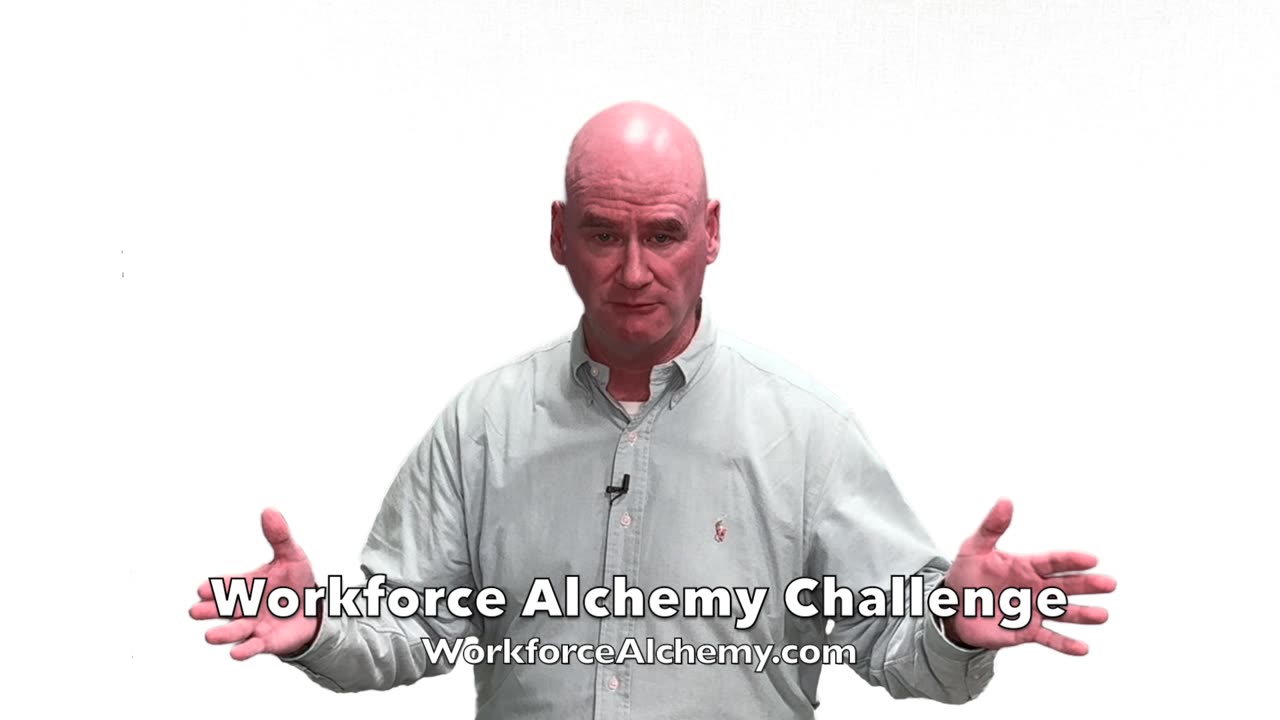Premium Only Content

Transactional vs. Transformational Employees: The Secret to Job Security, Promotions & Raises
Are you a transactional employee or a transformational one?
What’s the difference, and why does it even matter?
The biggest difference is the value you bring to your company. A transactional employee is an expense. A transformational employee is an asset.
Are you an expense, or are you an asset that is measurably and exponentially worth more than the salary you are being paid by your company?
Let’s take an HR executive as an example. A transactional human resource executive goes to work every day for 8 hours and does what needs to be done. They do things like process payroll, enroll people in benefits, and answer many questions from employees.
Yes, transactional employees do important work. But their value to the organization is defined by what it would cost their company to find someone else who can also perform those same job functions.
Payroll processing, for example, is not a strategic function of the company and delivers no competitive advantage. It’s just an expense, and the goal is to minimize expenses to maximize profit. That’s why so many companies outsource functions like that to companies that specialize in doing that kind of work efficiently and cost-effectively.
When a bunch of other job applicants, an outside company, or various tech applications are willing and able to do the same work tasks for less money and with fewer hassles, then job security becomes an illusion. Unfortunately, things like loyalty, years of service, and a good attitude don’t mean as much as they used to.
When transactional employees lose their jobs, don’t get promotions, or don’t receive significant raises, many are genuinely surprised, and maybe even a little angry. But they shouldn’t be. It happens all the time, everywhere, and it’s predictable.
Transformational employees, on the other hand, are dramatically different. So is the work they do. They have strategic knowledge, experience, and the tools they need to measurably affect the profitability of the companies they work for.
Let’s stick with the HR executive example. Transformational human resource executives, by comparison, have a seat in the boardroom during C-suite conversations. Why? Because they know how to solve expensive people problems before they occur, and the cost savings they bring are exponentially more than they collect in their salaries.
For example, a transformational HR executive looks at things like labor costs and employee engagement. They know that disengaged employees cruising through their workdays at half speed means that the company’s labor costs are literally TWICE what they should be.
Let’s pretend the labor costs at XYZ company are $10 million per year, and the discretionary effort of the average employee is only 50%. That means the company is paying $10 million but only getting $5 million worth of work accomplished.
A transformational HR executive who understands discretionary effort and employee engagement challenges and can figure out how to help employees tap into an additional 10% of their true potential would save their company one million dollars a year. If they could help employees capture 20% more of their true potential instead of just 10%, it would save their company two million dollars a year.
When it comes to challenges related to employee turnover, transformational HR executives also know the cost of employee turnover. There are formulas for figuring it out.
Experts say it costs about 16% of an hourly employee’s annual total wages to replace them. For most exempt employees, it costs about 21% of their annual salary to replace each of them. For highly compensated, salaried employees like doctors and top executives, it can cost between 150-213% of their annual salary to replace them.
Transformational HR executives know how to reduce employee turnover and retain talented employees. Their employers don’t lose a fortune each year replacing people who should have never left.
That is the secret to job security, faster promotions, and bigger raises.
How do you become a transformational employee? There are many ways. You can read books, take classes, hire a coach, participate in regular peer roundtable discussions and mastermind groups, or get an advanced educational degree.
However, there’s another way you might not know about. You can also apply for, accept, and complete the Workforce Alchemy Challenge at https://workforcealchemy.com, for free. In the time it takes to watch a movie or a couple of your favorite TV shows, you can learn transformational strategies, tactics, and access tools that can help you achieve measurable improvements where you work.
Follow us on social:
Facebook: https://www.facebook.com/people/Workforce-Alchemy/100089012713935/
Instagram: https://www.instagram.com/workforcealchemy/
YouTube: https://www.youtube.com/@WorkforceAlchemist
Rumble: https://rumble.com/user/WorkforceAlchemy
Dailymotion: https://www.dailymotion.com/WorkforceAlchemy
Twitter / X: https://x.com/WorkAlchemist
#hr #shrm #humanresources
-
 1:01:56
1:01:56
ThisIsDeLaCruz
15 hours ago $2.13 earnedInside Kenny Chesney’s Sphere Part 1: Exclusive Backstage Pass
19.9K -
 DVR
DVR
DLDAfterDark
4 hours ago $0.50 earnedA Complete Look Into The Glock "V Series"! Pistol In Hand! VERY GAY!!
10.4K -
 7:42
7:42
China Uncensored
12 hours agoIndia Has Surpassed China
23.8K11 -
 8:47
8:47
Hollywood Exposed
9 hours agoJoe Rogan and Zachary Levi DESTROY Gavin Newsom’s Lies About California
13.6K3 -
 DVR
DVR
BlackDiamondGunsandGear
4 hours agoInside NEW Glock V Models / Whats Next? / You giving up Glock?
15.5K2 -
 2:05:31
2:05:31
Glenn Greenwald
8 hours ago"Former" Al-Qaeda Leader Welcomed to the White House; The "New TikTok" Clamps Down on Israel Critics: With Influencer Guy Christensen; Dave Portnoy Decries Cancel Culture, Unless His Group is Under Attack | SYSTEM UPDATE #545
130K65 -
 7:30:07
7:30:07
Spartan
9 hours agoNine Sols
11.4K1 -
 2:34:56
2:34:56
SOLTEKGG
4 hours ago🔴 HUGE UPDATE - Veterans Day | Redbull x Dogtag Giveaway
11.9K1 -
 1:23:36
1:23:36
Flyover Conservatives
13 hours agoTough Love for Trump: What Must Change Now to Win Back America - Dennis Michael Lynch | FOC Show
22K4 -
 1:56:43
1:56:43
The White House
6 hours agoAbove, Below & Beyond: A Presidential Special
31K16